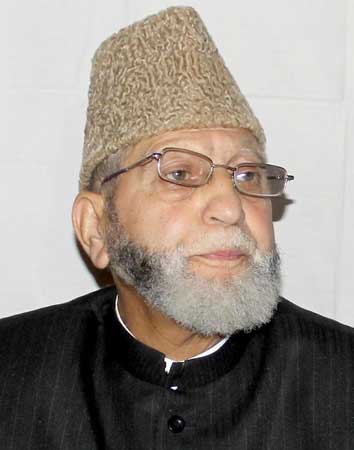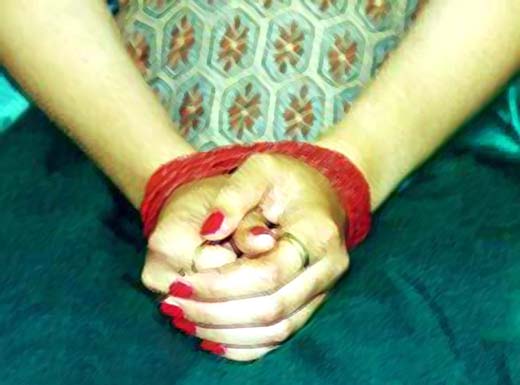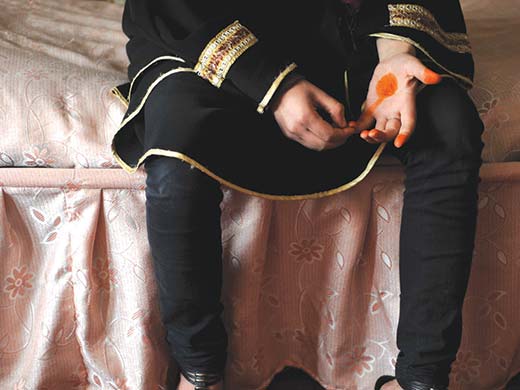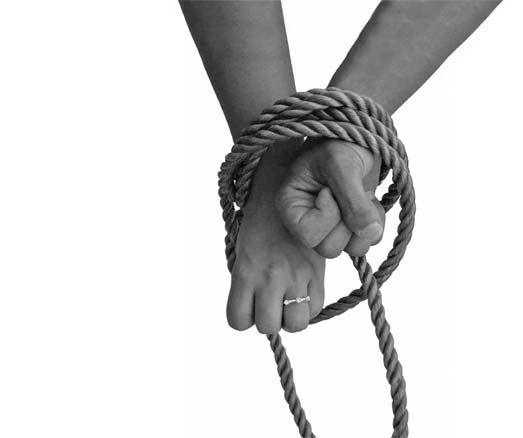A dejected employee exploited loopholes in J&K’s existing marriage registration system to blackmail his boss by marrying his daughter ‘legally’ without her knowledge. Syed Asma reports how a family’s struggle exposes the vulnerabilities of Muslim marriage laws in Kashmir
On a fine morning in 2009, when autumn was about to make way for winters, Khan, his wife and their young son Aqib were having breakfast when Malik, a family friend came visiting. Malik looked tense and wanted to talk alone with Khan. When they were in a separate room, without much ado, Malik took out two photocopied papers from his pocket – one of them a marriage agreement and another, a Nikah Nama, and showed them to Khan.
The documents read that Humaira, Khan’s youngest daughter, an 18-year-old, has solemnized marriage with Salman, a 30-year-old.
Khan, a government contractor by profession knew Salman well. He was working as a labourer with Khan for sometime before he was fired from the job then over burglary charges.
“After reading Humaira’s name on both documents – marriage agreement and Nikah Nama, I lost all my senses and could not understand anything,” said Khan.
Both the documents were fake and were made to take revenge, Khan’s son Aqib claims.
Aqib is right as the existing laws we have in Kashmir are full of loopholes. One can easily have his way with the law by using the corrupt system, says a lawyer wishing anonymity.
Interestingly, none of the lawyers have agreed to fight Khan’s case or comment over it openly as one of the accused is a part of the judicial system.
The documents suggest that this marriage is carried through Notary Public. Supposedly, it is the easiest way to get married and is applicable in the Jammu and Kashmir only. In the state, central laws (including registrar of marriages) are not applicable unless they are adopted by the state legislature, so the marriages are carried out through notary agreements.
Lack of proper law for registration of marriage has led to many fake marriages which later are used to blackmail one among the couple, mostly women.
Notary public includes a practising lawyer who is licensed to notarize legal documents: documents of any sort, marriage agreements included! In notary marriages, the couple is required to be present and are asked to provide two of their passport size photographs and sign the agreement in front of the lawyer. Besides, both of them have to give their finger impressions on the documents.
“Finger impressions are the only strong existing link in the document. It later helps to know if both existed for real or not. As we know signatures can be forged but finger prints differ from person to person,” says Aamir Khursheed Khan, a lawyer.
In Kashmir, every month around 150 notary marriages take place, some of them later turn out to be fake and are used to blackmail.
It was the same notary marriage document Khan received that morning. Besides the documents, Khan’s friend Malik had come with a message for the family as well. The message was from Salman:
“If you (Khan) did not pay me a penalty of Rs 10 lakh, I will spread the word of marrying your daughter in court in the whole district.”

The old couple were shocked and mum, Aqib says. But Aqib showed some courage to investigate the matter himself.
In 2009 Khan and his wife had gone for Hajj pilgrimage and had hired Salman as a head labourer for one of his (Khan’s) contracts, but on coming back after auditing the account, he found that Salman had fiddled with them. After properly investigating the matter, Khan fired Salman from his job.
“As Salman was a local and his parents were known to us, we did not lodge a police complaint against him, otherwise he deserved it,” says Aqib, “rather than working on himself to become a better human being, he used my sister’s name to blackmail us.”
Humaira was then 18 years old and was living in Meerut preparing for entrance examination for a course of physiotherapy.
After Aqib identified Salman, the first thing he did was to look for the two witnesses Salman had used in the marriage agreement. The two witnesses turned out to be locals but were settled outside, one in Mumbai and another in Goa. On enquiring from both of them they said their names had been misused.
“The best thing I could think of then was to make them sign an affidavit wherein they clearly accepted that their names have been misused and have not witnessed any such marriage,” says Aqib.
The second thing Aqib did was to visit Tangmarg Court as the marriage was registered from there. He applied for a duplicate copy of the marriage certificate, wherein he found his sister’s photograph and her signature.
“After I saw my sister’s picture in that marriage register I almost collapsed. But I pulled myself together as I had to be strong to fight for her honour,” says Aqib. “It was hard but I did it.”
After spending a few hours in the court, Aqib noticed an interesting character in the court-room – a peon, who was managing most of the court room himself.
Aqib chatted with him for a while and told him that he is interested to make a fake marriage certificate of a couple and asked if he (the peon) could be of any help.
“The peon agreed in the very first go but asked for money,” says Aqib, “I had to dig deeper so I too agreed. He invited me to his residence and on way to his home he was talking proudly about the relationship he shares in the set up.”
 Once they reached the peon’s residence, a few kilometres away from the court, a policeman came over and asked him to release a confiscated vehicle, remembers Aqib.
Once they reached the peon’s residence, a few kilometres away from the court, a policeman came over and asked him to release a confiscated vehicle, remembers Aqib.
After meeting the peon, Aqib had started to understand the whole plot but wanted to reassure that his sister was not actually involved. So, he took a flight to Meerut and went there to meet his sister. He asked her directly and tried every mode of emotion-tenderness, rudeness, psychological torture but she did not surrender and had a constant answer: “I don’t know any Salman and I did not marry anyone.”
“I knew she was innocent but had to reconfirm,” Aqib says with eyes full of tears, just a blink would get the tears rolling down his cheeks. “And then I got her home.”
Now after reaching home the siblings were discussing how to tackle the matter. Humaira, a minor then, suggested moving to the High Court and her brother obeyed.
They filed a writ petition in the court, it was accepted but none of the lawyers was ready to fight the case. As Humaira was a minor then Aqib was made the attorney in the case and was allowed to make arguments in the court himself.
As soon as the writ petition was filed, two notices were shot including the one to Salman. Aqib and rest of the family before filing the petition were well-aware of the consequences. As soon as the notices were shot to both, there was reaction.
Salman started spreading the news of his marriage with Humaira in the area, besides people in lower judicial set up used their influence and acquaintances to get this case withdrawn.
A meeting took place between the family and the person in judiciary. “He told me to withdraw the petition from High Court and promised, in return, that the agreement as well the Nikah Nama will be nullified,” says Aqib. “I wanted him first to nullify the agreement and the Nikah Nama but he didn’t agree.” The meeting ended at a bad note. No follow up ever happened because family decided against visiting the place. The family has preferred to follow the case in the High Court.
 They were made to suffer but they did not succumb and kept fighting. As the court proceedings are following, investigations reveal that all the signatures, except for Salman’s, in the marriage document are fake and are done by one of Salman’s close friend who works as an agent with a lawyer in the city court.
They were made to suffer but they did not succumb and kept fighting. As the court proceedings are following, investigations reveal that all the signatures, except for Salman’s, in the marriage document are fake and are done by one of Salman’s close friend who works as an agent with a lawyer in the city court.
The investigations also showed that the friend has managed all by himself. It is he who has managed to get the Molvi’s signatures. The Molvi in question is a resident of Uttar Pradesh who is a close aid of a top cleric in Srinagar. The Molvi is also an accused in the case.
Khan family is not the only family that has borne the brunt of “poor implementation of the law and the corrupt systems in vogue” as the lawyer had put it.
Sakeena too is one of the victims. A girl from Srinagar’s old city was studying in mainland India. Once while coming home during vacations Sakeena met a boy, Azhar, from Rajouri in the train. He was a school drop-out. They had a small interaction in the train and both went to their respective homes. Sakeena forgot and moved on but Azhar started following her. He arranged for her contact number and proposed to her. Not much interested in Azhar, keeping in view his different family and academic background Sakeena rejected the proposal. But Azhar did not surrender. He went to the city court and arranged for the marriage certificate attested by the notary and went up to her parents.
Her parents supported her fully and filed a writ petition in the high court. But while they were pleading the case in High Court, Azhar filed a suit against Sakeena’s parents claiming restitution of conjugal rights. Azhar won the case and the court directed Sakeena to move to Rajouri and start living with Azhar. After a year Sakeena delivered a baby boy and decided to withdraw the writ petition from the High Court.
In another similar case, a surrendered militant had arranged for a fake marriage certificate and had produced that to the girl’s parents a night before her wedding. Though, the court later nullified the certificate as the guy did not have enough proof to substantiate his claims but the social stigma was attached to the girl for life and she could never marry!
Due to the heterogeneous demography of the area, a couple of marriage acts are implemented in the place looking at the diverse religions practiced. In Jammu and Kashmir three Marriage acts are in Place, Indian Shariat Act of 1937 (Muslim Personal Laws), Jammu and Kashmir Christian Marriage and Divorce Act, 1957 and Jammu and Kashmir Hindu Marriage Act, 1980.
Being a Muslim majority place, the state legislature in 2007 passed a Bill making the Indian Shariat Act of 1937 (Muslim Personal Laws) applicable to all Muslims in the state. And it was made clear then that the Shariat laws will not be applicable for criminal legislation. Criminal laws will still be governed by Indian Penal Code and Ranbir Penal Code.
 In 2007 it was passed as a private bill by the then opposition leader Abdul Rahim Rather and was unanimously passed in the house.
In 2007 it was passed as a private bill by the then opposition leader Abdul Rahim Rather and was unanimously passed in the house.
The Muslim Personal Law (Shariat) Bill deals with inter-state succession, special property of women, including personal property inherited or obtained under contract or gift or any other provision of personal law, marriage, and dissolution of marriage, including talaq, trusts and trust properties. As per this law everything will be dealt with accordance with the Sharia. And Sharia talks more of being morally upright and conscious. Thus the law is either loosely implemented or voraciously exploited.
A senior law department officer says that after the Muslim Personal Law was implemented in the state, passing the bill of registration of marriages in the house had to follow but some of the religious leaders had rejected the idea.
“We many times have approached the Muslim religious leaders of the state but they have put forward their reservations against the law,” the officer said.
Responding to this issue Mufti Bashir Ud din, told Kashmir Life: “Nothing except Sharia can be accepted in this region. It is the Quran and Hadith which should govern the way of our lives.”
“I am against how the court of law in the state is implementing the Shariat law. Recently in Shah Bano’s case court entitled her to maintenance from husband for her entire life but Islam allows her to take it only for three months,” says the angry Mufti. Shah Bano was a divorcee.
Though, Mufti criticized the court’s judgement over maintenance but did not talk about the encouragement and freedom that Islam has provided to a woman, a divorcee or a widow, to remarry. He has never been seen talking about it.
This Mufti for past 54 years is running the so called Supreme Court of Islamic Shariat at his residence in Soura, Srinagar. He has inherited this ‘supreme court’ from his forefathers and says has been in place since 1507.
“It is a parallel court, a Sharia court,” he explains, “which is running with the consent of the successive governments.”
“Yes, governments have approached me to form particular laws regarding marriage but I believe implementation of Sharia is enough.”
Taking the lineage of his fore-fathers forwards, he has nominated his son and deputy mufti Nasir-ul-Islam as his successor. The Mufti likes to believe that people of Kashmiri society are morally upright and they do social boycott with the people who do not abide by Islamic Sharia.
In the ‘supreme court of Islamic Shariat’, Soura, Mufti Bashir all alone handles at least one lakh of the marital disputes each year, he says. Each case is resolved in a number of trials and in each trail a particular fee is charged.
“Our dispute was resolved in a couple of sitting and Mufti sahib charged us Rs 21,000,” says Haleema. Haleema is now separated from her husband.
The legal experts suggest that it is the weak law implemented on the Muslim majority which is easily exploited.
If a proper registration of marriage act would be implemented in the state on the entire population as is implemented among Hindus and Christians, cases of blackmailing and exploitation would be reduced, the legal experts believe.
Under the registration of Marriage act both the parties are required to fill an application form in registrar’s office along with residence, age and identity proofs. This is followed by displaying general public notice which invites objections from people for the period of one month. If no objections are received, marriage certificate is issued after 30 days.
The photographs of the couple are pasted on notice board for a month and sometimes notices are carried out in newspapers as well. This way general public and even families of both boy and the girl get informed thus leaving no scope of misusing it. In this law, it is mandatory to get one of the witnesses from your blood relations.
Under this act the agreement is signed before the Chief Judicial Magistrate which has more legal authenticity and is less vulnerable to fraud because any mischief played in marriage agreement is considered as an offense which is not case with the notary public.
The legal experts suggest implementing the Supreme Court’s recent judgment in case of Seema Vs Ashwin Kumar. The amendments were included in both Jammu and Kashmir, Jammu and Kashmir Hindu Marriage Act, 1980 and Jammu and Kashmir Christian Marriage and Divorce Act, 1957.
“In various States different marriage Acts are in operation e.g. in Jammu and Kashmir, Jammu and Kashmir Hindu Marriage Act, 1980 empowers the Government to make rules to provide that the parties (Hindus) shall have their particulars relating to marriages entered in such a manner as may be prescribed for facilitating proof of such marriages. Admittedly, no rules have been framed,” the judgment observed.
“As regards Muslims, Section 3 of the Jammu and Kashmir Muslim Marriages Registration Act, 1981 provides that marriage contracted between Muslims after the commencement of the Act shall be registered in the manner provided therein within 30 days from the date of conclusion of Nikah ceremony. However, the Act has not been enforced.”
The judgement observes further: “So far as Christians are concerned, the Jammu and Kashmir Christian Marriage and Divorce Act, 1957 provides for registration of marriages in terms of Sections 26 and 37 for registration of marriages solemnized by Minister of Religion and marriages solemnized by, or in the presence of a Marriage Registrar respectively.”
Note: The names of victims and accused have been omitted deliberately to divert attention towards the crisis rather than the characters involved.
















